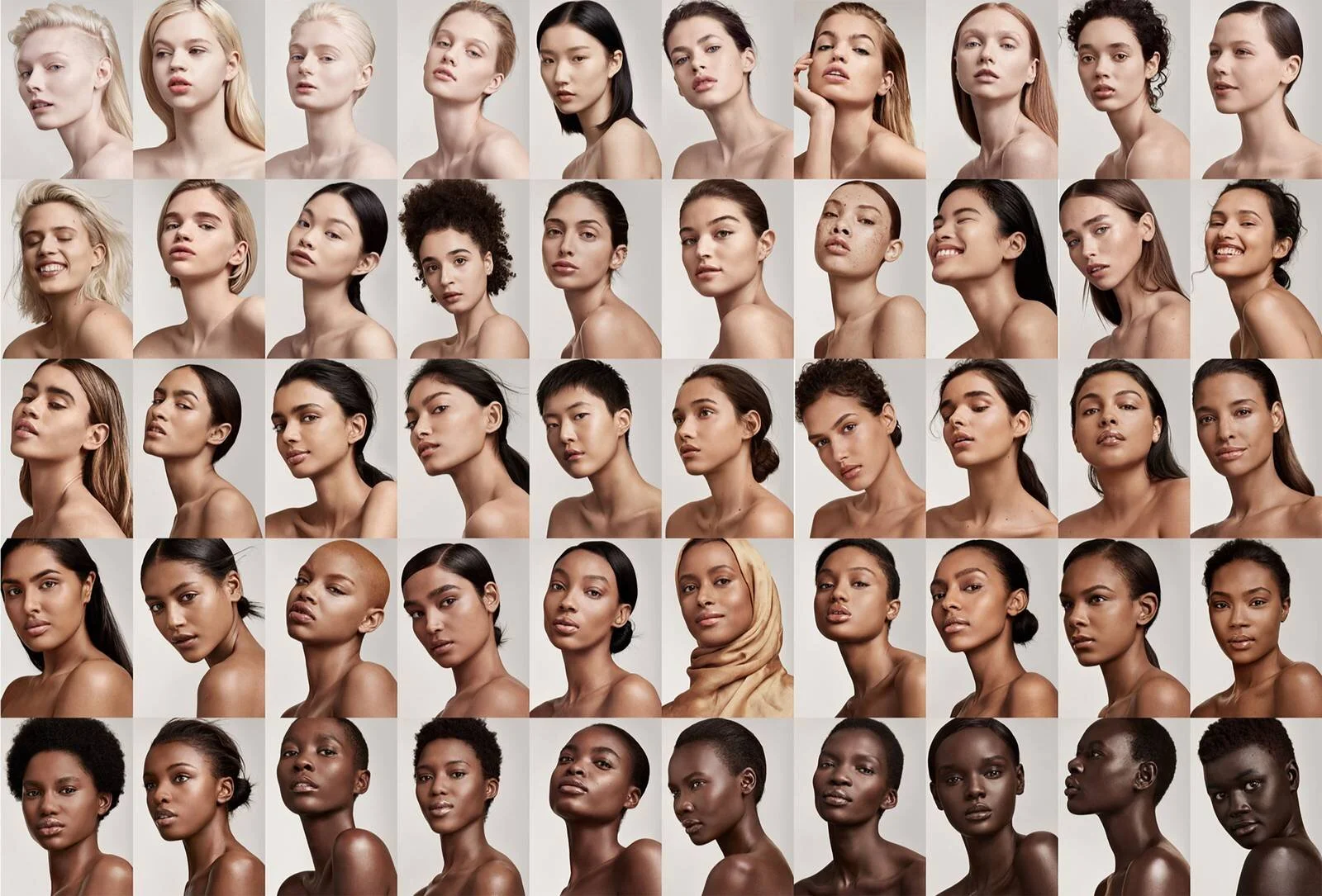What is Sustainable Marketing?
The term "sustainability" encompasses a wide range of concepts. It began with a desire to protect the environment and has since expanded to include issues of gender, race, poverty, mental health, and other subjects. It's a sustainability issue if it concerns the plight of humans or the environment.
You guessed it right, sustainable marketing considers all of the issues we discussed earlier and attempts to help resolve some of them. A good product is no longer sufficient to win consumer's favour. Customers were looking for products that were not only of high quality but also aligned with their values. In essence, the concept of sustainable marketing states that an organisation should meet the needs of current customers without endangering future generations' ability to fulfil their own needs.
The Lena River, some 2,800 miles(4,500km) long, is one of the largest rivers in the world. The Lena Delta Reserve is the most extensive protected wilderness area in Russia. It is an important refuge and breeding grounds for many species of Siberian wildlife.
Diversity in representation
One of the main areas you can improve your marketing strategy to make it more sustainable is to invite models of various ethnic backgrounds in advertising. However, it is crucial that the people you introduce in your marketing campaigns share the same ethos as you, your brand and your team. But diversity and inclusion do not simply mean having a balance of gender and race in your workforce with appropriate representation at every level. It means providing a safe and inclusive environment where work is enjoyable and every voice is equal and heard. Please make sure everyone involved are on the same page and don't force it. It should be achieved naturally through education.
ThirdLove is a lingerie company founded in 2013 in response to the frustrations that the co-founders and countless other women experienced when trying to find bras that fit their bodies. The brand created a line of bras with 78 different sizes, including half-cup sizes, based on measurements from millions of real women rather than industry size templates.
Fenty Beauty launched with 40 beautiful foundation shades, and now there are 50. There wasn't a brand at the time that genuinely reached everyone, from the lightest to the darkest skin. The well-crafted nuance of each shade in the range served as a proof point and the number of shades included. This allowed a large number of women to identify with the brand and feel included.
Storytelling
Storytelling is a massively important part of sustainable marketing. The stories could be about any issue that matters to you or your brand. It could be about preservation, respect for the environment and making products that won't end up in landfills after three uses. Storytelling marketing means using a narrative to communicate a message. The aim is to make the viewer feel something – enough to inspire them to take action. Storytelling in marketing helps consumers understand why they should care about something, and it works to humanise your brand.
Shea Moisture is known for their expertise and passion for curly hair with a fascinating history and fantastic storytelling skills! The ancestor of the company founders, Sofi Tucker, started selling Shea Nuts at the village market in Bonthe, Sierra Leone in 1912. By age 19, the widowed mother of four was selling Shea Butter, African Black Soap and her homemade hair and skin preparations all over the countryside. To this day, Shea Moisture products use potent natural ingredients and continue telling a story of their ancestors and shed light on various struggles and injustices ethnic minorities face to this day. They honour Sofi's vision by continuing to formulate with raw shea butter handcrafted by women in Africa. With every purchase, you show support of their mission to reinvest back in their communities.
A simple product with a clear goal can make a difference in people's lives.
Long-term loyalty is valued in genuinely sustainable marketing. You're going to buy another bag of coffee if you buy one and learn that it means an extra day of education for four refugees. It is also essential that many consumers are educated on this topic and know corporate greenwashing when they see it. Essentially, your success should also make a real-life change. Further, don't worry about being disruptive within your industry. After all, you want to improve the world by rethinking the strategies and concepts we rely on daily.
734 is more than a number. It is a place of refuge. 7˚N 34˚E are the geographical coordinates for Gambela, a region in Ethiopia where over 200,000 displaced South Sudanese citizens now live after fleeing war, atrocities, drought, and famine in South Sudan. 734 Coffee and Refugee Campus is about building a brighter future for the displaced mothers, fathers, sons, and daughters of Sudan. Their coffee is harvested by growers right in the Gambela region. Part of the proceeds goes right back to scholarships and education programs for refugees of Sudan. Their mission is simple: make great coffee for the greater good.
Clothing production consumes a lot of resources, from cotton cultivation to textile processing—its energy-intensive process. Textiles, on the other hand, account for roughly a quarter of all chemical substances produced worldwide. Traces of these chemicals can end up in a waterway. These are wasteful and highly polluting uses of valuable resources such as water and energy. Pangaia wanted to be a part of a natural solution that would change the way clothes are made. Using eucalyptus pulp and seaweed powder, their latest innovation transforms nature into the fabric. This results in soft, silky styles that are good for the environment.
An ambitious goal can support the profitability and long-term sustainability of a company.
It's critical to establish strong founding principles so that customers get more than just a product when they invest in your brand. That's the goal of any long-term marketing strategy: to get your product to inspire others to do good. A business model based on brand loyalty will ensure people come back. A good product, commitment to your community and an ultimate goal will keep you on track.
Tentree is an activewear company that pledges to plant ten trees for every item sold. Their core values drive them to find the best responsibly sourced materials and provide safe and respectful work environments. By the time a Tentree product reaches customers, its journey made the least amount of environmental impact and was proudly made by people treated fairly and with dignity.
You will be more resilient if you have a strong community.
As well as posting customer photos, you can document your events. Do enough things to be able to facilitate a meaningful discussion on the internet. As a result, your followers and customers will build a community around you, and you'll moderate it, establish boundaries and identify topics for future conversations.
Social media is not as vacuous as it once was — people want to see the substance in posted content.
Don't use social media as a catalogue — tell us your stories. When used in the same way as traditional advertising, social media fails. Prepare your content strategy in advance and make your posts thoughtful and valuable to your business and customers.
Patagonia has always prioritised high-performance products with the smallest possible environmental footprint. The company has built an intensely loyal customer base of avid outdoor adventurers and style-savvy consumers alike by creating multifunctional, durable, and authentic style as a part of every design. The company strives to develop high-quality products while causing minimal harm to the environment and investing in new technologies to make its supply chain and products more sustainable, with beliefs rooted in a love of nature. Patagonia motivates customers to take mutual responsibility for the life cycle of its products through repair, reuse, and recycling, in addition to using its celebrity to raise awareness of global warming and other environmental issues. They also make it easy for their customers to participate in social media discussions and share their ideas and experiences with becoming more sustainable while staying active and travelling.
Genuine sustainability is difficult to fake. It's not enough to put a green label on your product and claim it's environmentally friendly. Consumers are savvier than ever, and we have a fairly harsh culture regarding corporate transgressions.
So talk to your employees, board of directors, and customers. Determine which issues are most important to them and consider how you can incorporate them into your long-term marketing strategy.
Everything your company does should start with sustainability in mind. That could imply a significant overhaul, which may seem intimidating — if so, contact us, and we'll walk you through the process.
Not sure how you can improve the diversity and sustainability of your brand? Get in touch with our marketing team today!









![[ANNA]+article+signiture.jpg](https://images.squarespace-cdn.com/content/v1/5bb9dac965a7079ae2621d3b/1628690324187-UCF637OLY4QGCV5PHJEV/%5BANNA%5D%2Barticle%2Bsigniture.jpg)